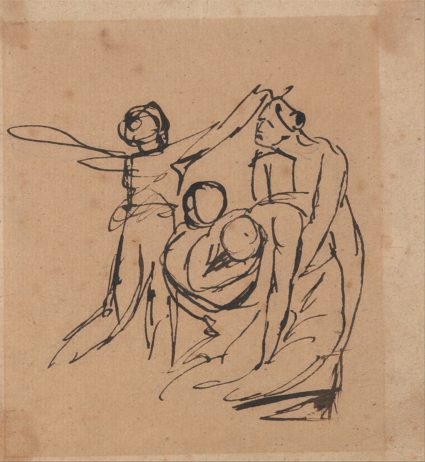March 20/Fifth Tuesday of Lent
O LORD, hear my prayer, and let my cry come to you.
Hide not your face from me in the day of my distress. ~ Ps 102.2-3
We’re not supposed to doubt that God hears us; we’re not supposed to question his whereabouts; we’re not supposed to cry, “How dare you?” It makes us uneasy to admit that we feel angry at or disappointed in God. We may worry that we are being disrespectful or even blasphemous if we express anything short of good old-fashioned praise and glory. But many psalms, today’s among them, invite us to loosen these shackles of propriety in our prayer. Indeed, our verses are thick with the anguish of unresolved pain: “Let my cry come to you.” “Hide not your face from me in the day of my distress.” For God does sometimes seem to go missing in our moment of greatest need. In giving us permission to lament this felt absence, to express our frustration, the psalms broaden the possibilities for our prayer. It is a curious paradox that the Psalms are entitled Tehillim, which in Hebrew means “Praises,” because in fact the psalms of lament outnumber the psalms of praise. Could it be that we praise God not by presenting him a nicely-wrapped catalog of “appropriate” sentiments when we pray, but by offering all the contents of our hearts, including pain, doubt, anger, and fear? The American poet Richard Wilbur conveys this beautifully in his poem “Psalm.” After four stanzas that connect the thanksgivings and praises of the psalms with the bright sounds of the lute, the horn, the flute, and the drum, he ends: “Then, in grave relief, / Praise too our sorrows on the / Cello of shared grief.”
Compassionate God, Grant that I may sing your praises always, in major and minor keys alike. Amen.
For today’s readings, click here: http://www.usccb.org/bible/readings/032018.cfm
To read Richard Wilbur’s “Psalm,” click here: http://www.firstthings.com/article/2010/03/psalm
